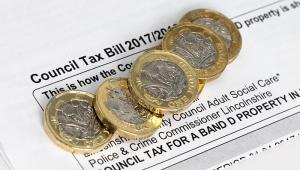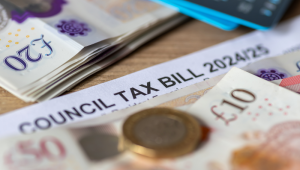Of those looking to put up their council tax, three quarters will increase it by more than 2.5%, according to analysis by the Local Government Information Unit think-tank.
Raising council tax by more than 3% requires local authorities to hold a referendum on the decision.
As councils face ongoing financial difficulty, 53% plan to dip into their reserves this year and 40% plan to do so two years running, according to the survey released today.
A further 80% of councils said they are not confident in the sustainability of local government finance, the LGiU found.
Recent analysis by CIPFA found that up to 15% of councils in England are at risk of financial instability.
Respondents to the LGiU survey expressed concern over their ability to deliver statutory services, with one in 20 (22 councils in England) suggesting they may not be able to deliver the legal minimum services for residents.
Jonathan Carr-West, chief executive of the LGiU, said: “With more cuts ahead, local councils have no option but to take drastic measures to make ends meet.
“In future, care for the elderly and vulnerable children could be funded from shopping centre investments and car parks, which carries significant risk if the economy tanks.
“Now more than ever we need a thriving, resilient local government sector to weather the storm of national uncertainty, but years of chronic under-funding has left local government on life support.”
The survey, which received responses from 158 out of the 353 councils in England contacted, found that 36% of councils said children’s services and education were the top immediate financial pressure. Adult social care is the top long-term financial pressure, according to 37% of councils.
Despite this, 29% of local authorities surveyed planned to reduce activity in adult social care and 24% said they would cut children’s care services.
Non-statutory services will also be cut, the survey found, including libraries (32% of councils), arts and culture (46%), parks and leisure (45%), waste collection (22%), recycling (11%) and roads (38%).
Richard Watts, chair of the Local Government Association’s resources board, said: “This survey illustrates the severity of the challenge facing councils with government grant funding at the lowest it has been for decades at the same time as demand for services, such as adult social care, children’s services and homelessness support, has grown.”
The survey, which was conducted in association with The Municipal Journal, found that gang activity was the main reason for pressure on children’s services in one in 20 upper-tier councils.
An MHCLG spokesperson said: “We are investing in Britain’s future by providing local authorities with access to £91.5 billion over the next two years to meet the needs of their residents.
“Authorities are receiving an £1bn extra in funding this coming year to help deliver local services.
“In the coming financial year all local authorities will receive more control over the money they raise, paving the way for a fairer, more self-sufficient and resilient future for local government.”
In this year’s local government finance settlement, James Brokenshire gave Northamptonshire the ability to increase its council tax by 4.99%.
The Public Accounts Committee recently warned that the UK government is “in denial” about the sustainability of local government finance.











